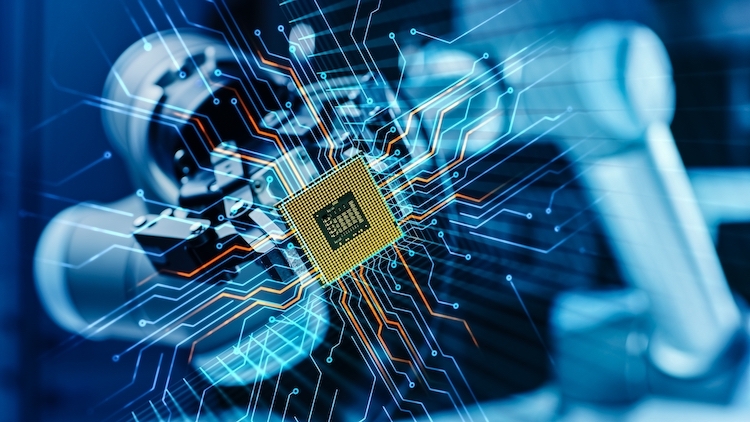How AI-powered training is solving major quality control issues in manufacturing
In the manufacturing sector, consistent training and oversight are paramount to ensure adherence to quality standards and safety protocols. Recent quality control incidents at Boeing starkly highlighted the risks associated with gaps in these areas. These incidents serve as a crucial reminder that maintaining high standards is increasingly challenging in the face of high employee turnover and the looming retirement of over 75 million baby boomers. Amidst these challenges, innovative solutions are emerging, transforming training methods using artificial intelligence (AI) to ensure that quality does not falter as the workforce evolves.
With the advent of AI, industry leaders are presented with an unprecedented opportunity to digitize their operations. Mark Cuban, a prominent business figure, emphasizes the critical nature of this technological shift, stating, ‘There are only two types of companies in this world: those that are great at AI and everybody else. If you don’t know AI, you are going to fail. Period.’ This sentiment captures the essence of why being early adopters of AI technology is not just beneficial but essential for manufacturing companies aiming to lead and succeed in their markets.
The impact of AI on quality control

Quality control is a fundamental pillar in manufacturing that ensures products meet stringent standards of safety and performance. Traditionally, this process has relied heavily on human oversight, which can be prone to errors and inconsistencies, particularly as workforce dynamics shift and skilled labor becomes scarcer. Always-on, AI-powered video training introduces a level of precision and consistency that traditional training methods alone cannot achieve. Through machine learning algorithms and data analytics, AI systems introduce a level of standardization and sophistication out of reach of organizations reliant on old-school methods.
Fostering innovation and continuous improvement
AI not only refines existing processes but also drives innovation. By harnessing AI, manufacturers can explore new ways of producing goods, from employing advanced materials to implementing cutting-edge production techniques. These innovations often lead to the development of superior products and the penetration of new markets. Furthermore, AI facilitates a culture of continuous improvement by providing insights derived from data analytics, enabling companies to refine their strategies in real-time.
The strategic advantage of being an early adopter
Early adopters of AI in manufacturing gain a substantial competitive edge. They can set benchmarks in quality and efficiency that become the industry standards. Early implementation of AI also allows companies to overcome training problems and integrate AI deeply into their operational fabric, ahead of their competitors. This foresight and readiness not only prepare them for future challenges but also position them as leaders in innovation, attracting top talent and investment.
Training is an imperative: today, only 29% of current manufacturing workers possess the advanced skills necessary to adapt to changing technology. Manufacturers embracing their own digital learning platforms will be better able to recruit, train, and retain talent with effective AI-powered, video training programs, compared to those organizations who do not.
The risks and rewards
Despite its many benefits, adopting AI comes with its set of challenges. The initial cost of implementing AI technologies can be high, and there is a learning curve associated with using these new tools effectively. Once implemented, AI technologies will challenge an undereducated workforce to embrace digital methods of learning. However, the long-term rewards, including cost savings, enhanced capabilities, and new opportunities, far outweigh these risks. Leaders in the manufacturing sector must navigate these challenges thoughtfully, prioritizing training and development to ensure their workforce can thrive in an AI-enhanced environment.
The imperative for manufacturing leaders to embrace AI technology is clear. As Mark Cuban succinctly puts it, understanding and implementing AI is not just an enhancement – it’s a necessity for survival and success in the modern industrial landscape. By adopting AI early, manufacturers can ensure they remain at the forefront of their industry, characterized by higher quality, greater efficiency, and continuous innovation. In the age of AI, these are the attributes that will define the next generation of industry leaders, distinguishing them from ‘everybody else.’
By Sam Zheng
Sam Zheng, CEO and co-founder of DeepHow, spearheads a rapidly evolving startup that revolutionizes skilled workforce training with an AI-powered, video-centric knowledge-capturing and transfer platform. Prior to DeepHow, Zheng dedicated more than a decade to Siemens, driving digital innovation across various industries. His projects, such as the Cloud Digital Inspection Jacket, have improved technical knowledge sharing, efficiency, and user experience, earning his team the Siemens Innovation Award. Zheng also serves as an adjunct professor of Psychology at Tsinghua University and holds a Ph.D. in Engineering Psychology and a Master’s in Statistics from the University of Illinois at Urbana-Champaign.
